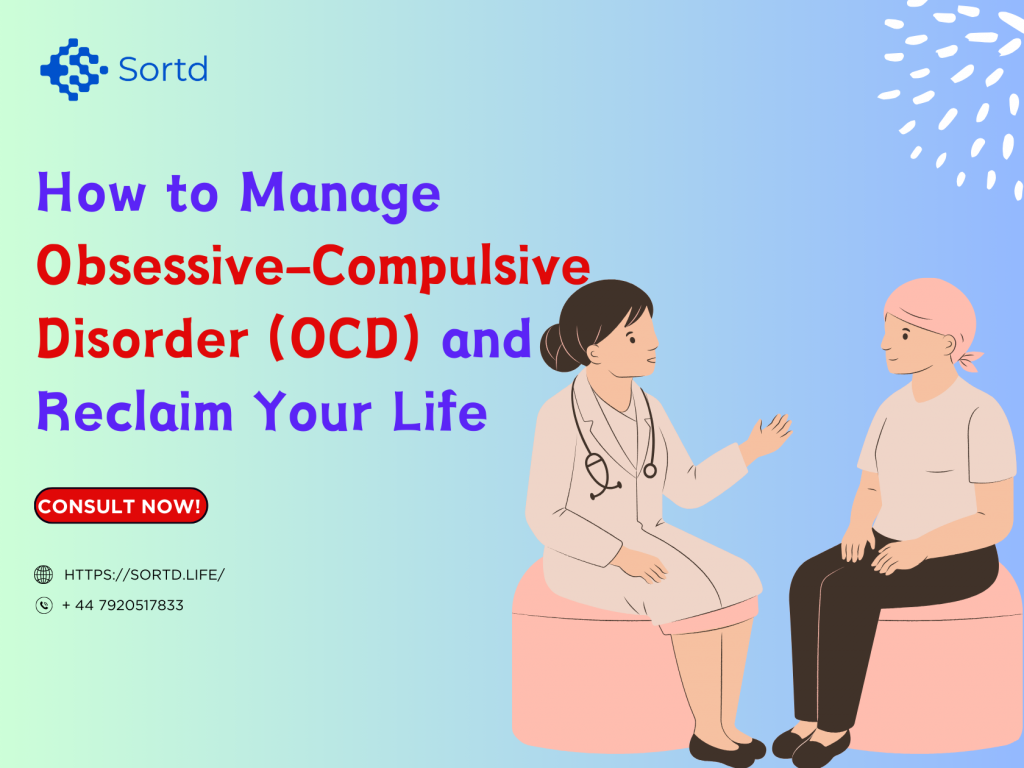
How to Manage Obsessive-Compulsive Disorder (OCD) and Reclaim Your Life
Obsessive-Compulsive Disorder (OCD) is a mental health condition that affects millions of people worldwide, impacting their daily lives and well-being. Characterized by persistent, unwanted thoughts and repetitive behaviors or mental acts (compulsions), OCD can be a challenging condition to navigate. Here, we will dive into the intricacies of OCD, exploring its symptoms, potential causes, and effective management strategies to empower individuals on their journey toward a healthier and more fulfilling life.
1. Understanding Obsessive-Compulsive Disorder (OCD):
- Recognizing Obsessions and Compulsions:
Obsessions are intrusive and distressing thoughts, images, or urges that repeatedly enter one’s mind. Compulsions are repetitive behaviors or mental acts performed in response to the obsessions, aimed at preventing or reducing anxiety. Understanding this cycle is crucial in identifying and addressing OCD.
- Common Themes of OCD:
OCD can manifest in various themes, such as contamination fears, fears of harming oneself or others, fear of making a mistake, and a need for symmetry or order. Recognizing these themes can help individuals and their loved ones comprehend the specific challenges associated with their condition.
2. Causes and Risk Factors:
- Biological Factors:
Research suggests a genetic component to OCD, with certain brain structures and neurotransmitters playing a role in its development. Understanding these biological factors can destigmatize OCD and emphasize the importance of seeking professional help.
- Environmental Factors:
Stressful life events, trauma, or environmental triggers may contribute to the onset or exacerbation of OCD symptoms. Recognizing and addressing these factors can be integral to effective management.
3. Management Strategies:
- Professional Intervention:
Seeking help from mental health professionals, such as psychologists or psychiatrists, is a critical step in managing OCD. Therapeutic approaches like Cognitive-Behavioral Therapy (CBT) and Exposure and Response Prevention (ERP) have proven effective in treating OCD symptoms.
- Medication:
In some cases, medication may be prescribed to help manage OCD symptoms. Antidepressants, particularly selective serotonin reuptake inhibitors (SSRIs), are commonly used to alleviate obsessive thoughts and reduce compulsive behaviors. Read these Self-Care Tips for Managing Panic Attacks
- Building a Support System:
Open communication with friends, family, and support groups can provide invaluable emotional support. Sharing experiences and strategies for coping can help individuals with OCD feel understood and less isolated.
- Self-Care and Stress Management:
Adopting a healthy lifestyle, including regular exercise, sufficient sleep, and stress-reduction techniques, can contribute to overall well-being and aid in managing OCD symptoms.
Conclusion:
Understanding and managing Obsessive-Compulsive Disorder requires a multi-faceted approach that combines professional intervention, a supportive environment, and individual coping strategies. By unraveling the layers of OCD and addressing its various components, individuals can work towards a life where obsessions and compulsions no longer dictate their daily experiences. Start your sessions for Cognitive Behavioural Therapy

